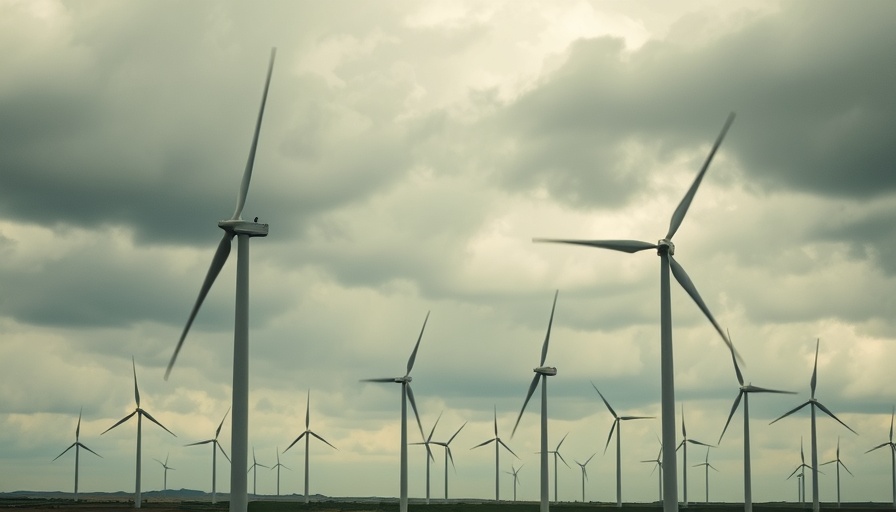
Texas' Wind Revolution: The Impact of Los Vientos
In the heart of the Rio Grande Valley, where the winds have danced across the lands for centuries, a renewable energy revolution is reshaping the landscape of Willacy County. The Los Vientos Wind Farm, with its impressive 426 turbines, stands as a symbol of resilience and renewed hope for this small farming community. Once plagued by economic downturns and an exodus of its youth, the region now embraces the winds as a source of prosperity and innovation.
Wind Turbines Bring Economic Growth
The advent of wind farming in this area marks a new chapter for its residents. Rick Salinas, a lifelong local, reflects how the wind turbines have ushered in an era of "good fortune." As traditional farming dwindled, the wind farm has revitalized the local economy. Property tax revenues from the wind turbines are pouring into the silent town's schools, ensuring a brighter future for its children. Experience has shown that local districts have benefited tremendously, enabling schools to enhance their programs and attract new talent.
The Turbines: A Dual-Edged Sword?
Despite the influx of revenues, not all voices echo the same sentiments. Glenn Wilde, a seasoned farmer, exhibits mixed feelings towards the towering structures invading the once wide-open vistas. While he has embraced the financial compensation from leasing his land for turbines, the trade-off has stirred a complex emotional response. It's a poignant reminder of how the landscape of opportunity often comes bundled with significant change.
Environmental Evolution: A Sustainable Future
The juxtaposition of agricultural tradition and sustainable innovation in Willacy presents a vital learning framework for other regions considering renewable energy projects. The turbines signify more than just an economic lifeline; they represent an evolving understanding of land use—combining traditional farming with modern renewable energy approaches. Thus, Willacy County can serve as a model for communities grappling with the balance between environmental stewardship and economic necessity.
Challenging Past Narratives: Cultural Significance
This region is steeped in history, from the trails of the Coahuiltecan Indians to crashing Spanish ships—each gust of wind holding a story of struggle and survival. As we embrace wind energy, it is crucial to recognize how it interweaves with local culture and legacy, possibly leading to a rejuvenation of community pride and historical recognition.
The Future and Wind Energy: A Broader Perspective
As we forecast future developments, wind energy clearly extends its benefits beyond just power generation. It spurs job creation, boosts education in renewable technologies, and decreases dependency on fossil fuels. However, challenges abound—communities must navigate potential ecological impacts and ensure equitable land use policies arise alongside turbine installations.
A Call to Action for Local and Global Communities
The story of the Los Vientos Wind Farm is not merely about the mechanics of wind harvesting; it's a call for communities everywhere to seek sustainable growth through innovative energy solutions. The knowledge gleaned from Willacy's journey can empower others to harness their natural resources wisely while respecting the land’s historical and cultural tapestry.
Whether you're a student in environmental science or a resident looking to understand how renewables can shape your community, staying informed and engaged with local developments will only amplify the wind's potential. Join the conversation about how we can collectively stride towards a more sustainable future!
#LosVientosWindFarm, #RenewableEnergy, #WindTurbines, #WillacyCounty, #EconomicGrowth, #SustainableFuture, #CommunityImpact, #EnvironmentalStewardship, #CulturalLegacy, #JobCreation
 Add Row
Add Row  Add
Add 




Write A Comment